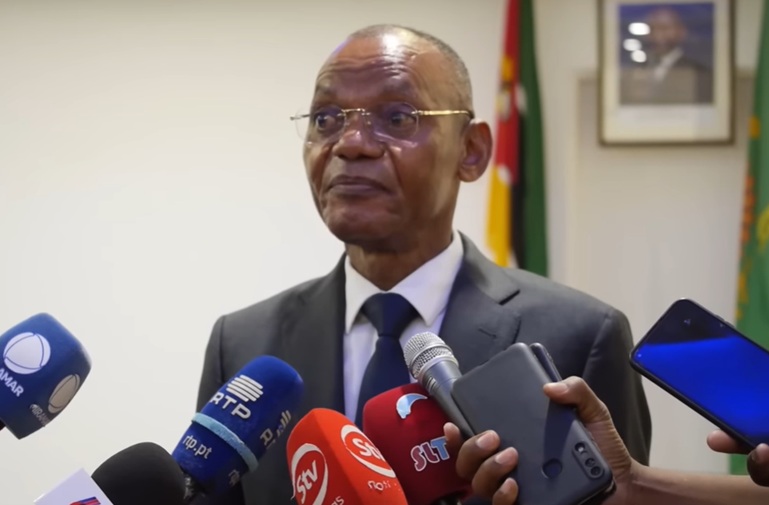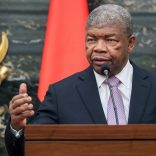Mozambican PM arrives in Beijing for Global Leaders' Meeting on Women
Mozambique: Only one UIR officer killed in Cabo Delgado ambush, Minister clarifies

Screengrab: STV
Mozambican Interior Minister Paulo Chachine yesterday confirmed that only one officer of the Rapid Intervention Unit (UIR) of the Mozambican Police died in an ambush on Tuesday in Cabo Delgado province. The attack occurred between Chitunda and Xitaxi in Muidumbe district, while the UIR was escorting motorists along the Awasse–Mocímboa da Praia–Macomia route
“It is only one. There was indeed one victim, a colleague of ours. They fell into an ambush and one perished, died,” said the minister, questioned by journalists in Maputo on the sidelines of the swearing-in ceremony of provincial police commanders, denying that there are more fatalities in this attack.
The ambush, allegedly carried out by a group of insurgents, on the stretch between Chitunda and Xitaxi, Muidumbe district, occurred around 9 a.m.,when the UIR was escorting motorists travelling the route Awasse, Mocímboa da Praia to Macomia, central Cabo Delgado.
A local source had told Lusa earlier yesterday that four UIR officers had died in this incident, while the investigator Peter Bofin, from the ACLED centre, which monitors conflicts, cited by AFP, noted the record of “at least two dead” among members of that police force in the ambush.
These escorts on that road were resumed in July, at the request of local populations and businesspeople, following the resurgence of terrorist attacks in the area.
Cabo Delgado province, in northern Mozambique, rich in gas, has been targeted by extremist attacks for eight years, with the first attack recorded on 5 October 2017, in Mocímboa da Praia district.
The UN estimated on Tuesday that at least 44 people died and another 208,000 were affected in August by attacks from extremist groups in Cabo Delgado, a Mozambican province that has faced an armed insurgency for eight years.
According to a field report from the United Nations Office for the Coordination of Humanitarian Affairs (OCHA), by August Mozambique also reported a total of 111,393 displaced people, the majority from Cabo Delgado (109,118), despite recorded movements of people in Niassa and Nampula provinces.
“Civilians continue to face serious security and protection risks, including kidnappings, looting and threats,” the document states, adding that these incidents in August “resulted in 44 dead and 101 kidnapped, including six children and five women.”
It adds that insecurity, combined with “significant” reductions in humanitarian funding, “severely” limited the capacity of partners to reach the affected populations.
“Violence against civilians, military operations, sightings of non-state armed groups and rumours of kidnappings and ransom demands made access unpredictable in districts with the highest severity of needs and incidents,” the report states, adding that the situation resulted in the temporary suspension of humanitarian missions in the rural areas of Macomia, Quissanga, Muidumbe, Mocímboa da Praia, Meluco and Metuge districts in early August.
According to OCHA, in August funding for organisations on the ground was half of what was available in the same period last year, reducing humanitarian presence and limiting partners’ ability to adapt to a dynamic operational context or to expand responses to the emerging needs of the roughly 208,000 people affected by the conflict.
Nearly 93,000 people have fled Cabo Delgado and Nampula since the end of September due to the resurgence of attacks in northern Mozambique, doubling the number of displaced in a few days, according to earlier data from the International Organization for Migration (IOM).
The President of Mozambique, Daniel Chapo, considered on 6 October the attacks in Cabo Delgado as “barbaric acts” and against “human dignity.”
The Armed Conflict Location & Event Data Project (ACLED) records 6,257 deaths after eight years of attacks in Cabo Delgado, warning of the current instability.












Leave a Reply
Be the First to Comment!
You must be logged in to post a comment.
You must be logged in to post a comment.